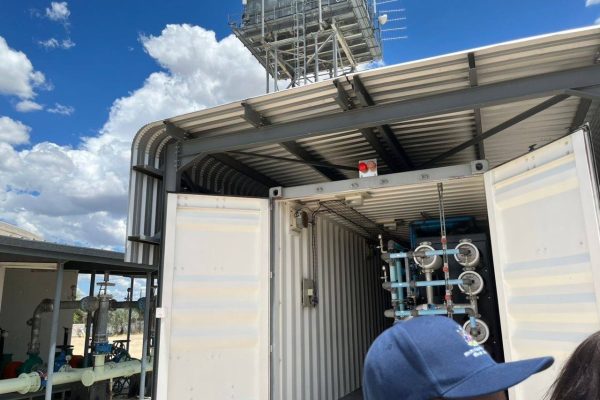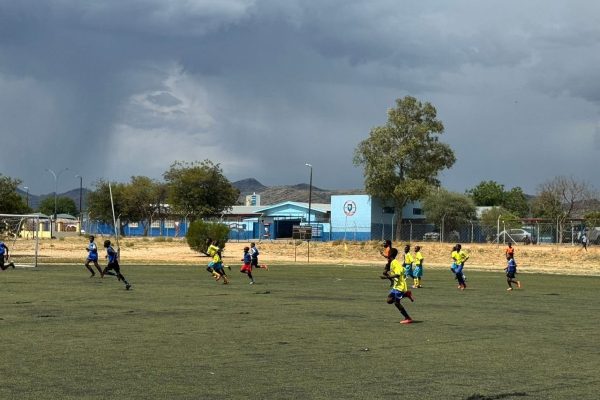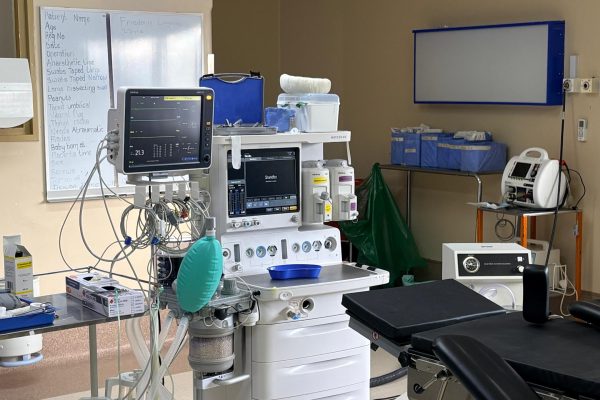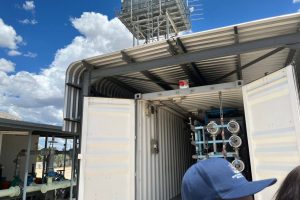
By: Nghiinomenwa-vali Hangala
The Outapi Town Council availed land measuring 9.4929 hectares for the establishment of the Flexible Land Tenure Schemes (FLTS), with some of the residentials plots handed over to their respective owners last week.
According to the Minister of Agriculture and Land, Inge Zaamwani-Kamwi, who delivered a statement during the handover last week, the land is subdivided into four surveyed blocks and is registered with the deeds office in compliance with the provisions of the Flexible Land Tenure Act.
The demarcation of the blocks culminated into 201 plots created, of which 194 are residential and the remaining 7 being common properties. Zaamwani-Kamwi indicated that 173 of the residential plots are registered, leaving 21 still without registered titles.
In her statement, Zaamwani-Kamwi highlighted that the country has a bigger challenge: that of informal settlements increasing at an alarming rate.
“We have a crisis of livelihoods of fellow Namibians living in the informal settlements. This trend is growing every day in our periphery of our urban areas,” she stated.
In 2019, the late President Hage G. Geingob declared a state of emergency in all informal settlements across the country.
Furthermore, the Second National Land Conference resolved that the Flexible Land Tenure Act of 2012 be rolled out to all local authorities in the country as a vehicle to formalise informal settlements, in turn accelerating urban land delivery.
The Flexible Land Tenure Act is a tailor-made legislation targeting low-income earners to have access to urban land, especially those who find themselves in informal settlements and those without any land titles.
Zaamwani-Kamwi explained that by collaborating with the Urban and Rural Development ministry and implementing the Flexible Land Tenure Act in local authorities, her ministry follows the Cabinet’s mandate to implement a policy of urban tenure reforms.
“I call upon all local authorities to rethink how the transformation of accelerating formalisation of informal settlements will be addressed in your respective local authorities moving forward,” she appealed.
In the same breath, she called upon those living in the informal settlements to approach their local authorities and request for the formalisation of their settlements under the Flexible Land Tenure Act.
Zaamwani-Kamwi indicated that the intention is to make urban land delivery in informal settlements readily available and affordable. She also said the expectation of the ministry was to see numerous local authorities taking advantage of the policy initiative to provide tenure security to communities living in informal settlements.
However, “we are yet to see this shift in many local authorities where this challenge of informal settlements exists, to ensure this service is not denied to the people living in informal settlements. As elected leaders in local authorities, let us do the right thing; the right agenda of providing tenure security through true titles under the Flexible Land Tenure Act,” she encouraged.
Outapi has now joined Oshakati and Gobabis where the schemes are being implemented.
The minister also updated that her ministry is currently collaborating with Otjiwarongo, Karibib, Oshakati, Kamanjab, Gochas, Mariental, Okakarara, Luderitz, and City of Windhoek to formalise informal settlement and issue land titles to beneficiaries.
President Netumbo Nandi-Ndaitwah has committed to deliver 10,000 plots annually for the construction of low and medium-cost houses annually.
Urban and Rural Development Minister, James Sankwasa, at the same occasion indicated that the FLTS is likely to mitigate past land injustices as it introduces new tenure types that are responsive to the needs of those dwelling in informal settlements across local authorities.
Sankwasa indicated that his ministry planned to roll out, fund and set performance targets for targeted local authorities for the implementation of the Informal Settlement Upgrading and Sanitation Project over the period of five years starting this year.
The targeted localities are Windhoek, Walvis Bay, Oshakati, Rundu and Keetmanshoop.
He stated that more localities would be added to the list if their execution did not comply with the ministry’s stipulated set of requirements.
He also urged local authorities implementing the Informal Settlement Upgrading and Sanitation Project to expedite execution, providing timely submissions of progress reports to ensure disbursement of funds to projects.









